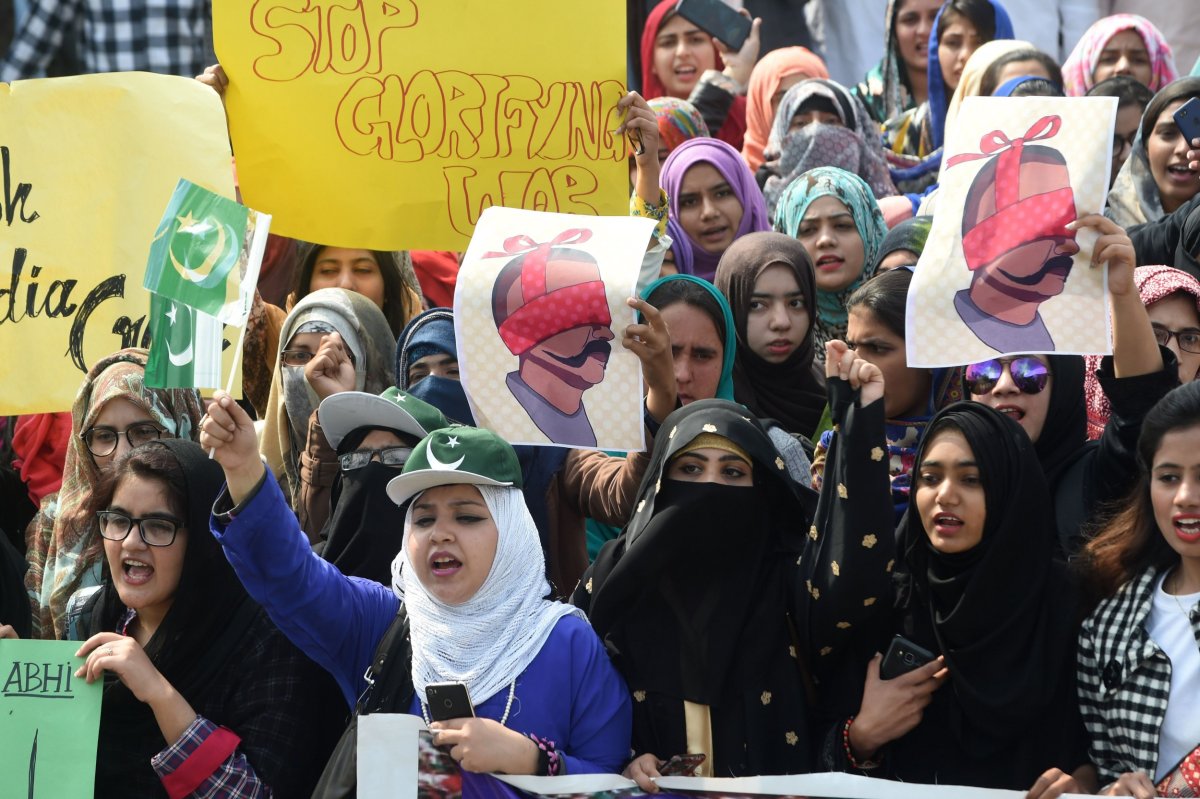President Donald Trump suggested that tensions between Pakistan and India might be coming to an end, as Pakistan announced it would release a captured Indian fighter pilot despite reports of continuing exchanges of weapons fire along the disputed Kashmir border.
Speaking at a press conference marking the end of his summit with North Korean leader Kim Jong Un in Hanoi, Vietnam, Trump told reporters he had been given "reasonably attractive" news about de-escalation efforts on the subcontinent, although he did not elaborate.
"Hopefully, that's going to be coming to an end," Trump said, adding that peace was "probably going to be happening."
The president also explained that the U.S. had been acting as an intermediary. "We've been involved in trying to have them stop," Trump said, The Washington Post reported. "We've been in the middle, trying to help both out to see if we can get some organization and peace, and I think probably that's going to be happening."
Just hours after the press conference ended, Pakistani Prime Minister Imran Khan told parliament that a captured Indian pilot—Wing Commander Abhinandan Varthaman—would be released Friday as a gesture of goodwill, according to The Post. Varthaman had been shot down in a dogfight over the disputed border—known as the Line of Control—on Wednesday.
Foreign Minister Shah Mehmood Qureshi also told a Pakistani news channel that Khan was ready to speak with Indian Prime Minister Narendra Modi about regional terrorist organizations and steps to de-escalate the tense situation, The Economic Times explained.
The downed fighter pilot has become the face of the diplomatic crisis that has developed between the two nuclear-armed neighbors. He came to prominence when video emerged of a blindfolded and bloodied Varthaman undergoing questioning immediately after his capture, though Pakistan later released more footage showing him unrestrained and drinking tea after receiving medical treatment.
The standoff began with a terror attack on an Indian military convoy earlier this month. At least 40 Indian paramilitary troops were killed when a bomber sent by the Pakistan-based Jaish-e-Mohammed militant group rammed a vehicle laden with explosives into the convoy as it traveled in the disputed northwestern region of Kashmir.
India accused Pakistan of facilitating the attack, which was the deadliest in Kashmir since 1989. Pakistan denied any involvement.
In response, the Indian air force launched a series of air strikes on alleged terrorist training camps near the Pakistani town of Balakot, just across the border between the two countries. The Indian government claimed that 300 suspected militants had been killed.
Pakistan then launched its own air strikes across the border on Wednesday, targeting non-military sites, according to The New York Times. Military officials said the attack was supposed to demonstrate the country's "right, will and capability for self defense," CNBC reported.
As Varthaman pursued the Pakistanis along the border, he was shot down by either a surface-to-air missile or another Pakistani fighter. India claims to have destroyed a Pakistani plane in the exchange, though Islamabad has denied suffering any losses. Pakistan had initially claimed to have shot down two Indian aircraft.
However, even as Khan said Varthaman would be released, local media were reporting continued exchanges along the Line of Control. Though such incidents are fairly common, the clashes threaten to exacerbate the risk of further escalation.

Uncommon Knowledge
Newsweek is committed to challenging conventional wisdom and finding connections in the search for common ground.
Newsweek is committed to challenging conventional wisdom and finding connections in the search for common ground.
About the writer
David Brennan is Newsweek's Diplomatic Correspondent covering world politics and conflicts from London with a focus on NATO, the European ... Read more
To read how Newsweek uses AI as a newsroom tool, Click here.








